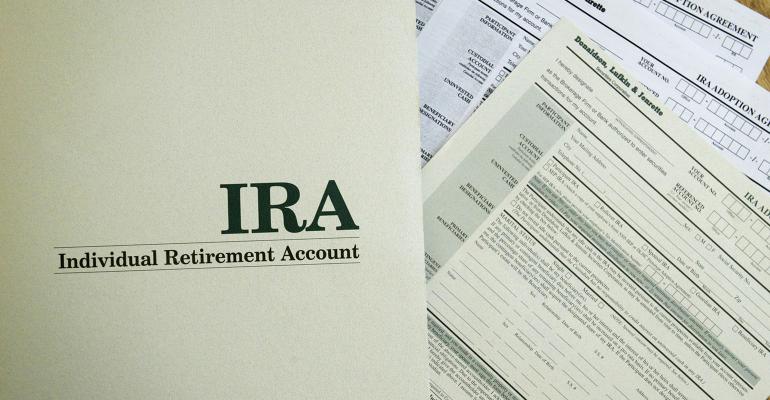Lawmakers sometimes introduce proposals that sound good in theory but don’t always make sense in practice. The latest example was a push in the U.S. House of Representatives to ban a series of Regulation D investments from being included in tax-advantaged retirement accounts such as IRAs.
While the move was part of an effort to pay for a fresh round of spending, it was also a response to news reports surrounding venture capitalist Peter Thiel’s Roth IRA. Years ago, he used it to purchase “founder shares” of PayPal, a company he helped launch with the likes of Elon Musk. Those shares are now reportedly worth more than $5 billion.
Because Thiel is a bit of a polarizing figure in some circles, he’s a good poster child for changing rules that ostensibly favor the rich. But the proposal’s unintended consequences would have been enormous, so, thankfully, lawmakers dropped it for now.
And though this was a victory for the industry and retirement savers, everyone should understand that similar proposals will get introduced in the years to come. Indeed, if we’ve learned nothing else about regulators and lawmakers over the years, it’s that once they set their sights on a policy or initiative, they will likely continue to pursue it even after hitting roadblocks.
But Congress was wrong in this case, and anyone who tries to do the same will be wrong in the future. Here’s why:
Who’s Rich? For instance, even as $1 million is undoubtedly a lot of money, it’s not enough for most people to quit their job and forget about working, as most financial advisors can attest (Obviously, the same is true for anyone with less than that). If you don’t want to take my word for it, consider a recent study, which concluded that so-called “rich” people have a net worth closer to $2 million. Therefore, before offering policies intended to rein in the supposed excesses of wealthy people, policymakers need to consider who actually meets that standard – and, importantly, who doesn’t. But this is itself falling into the trap of justifying penalties for the rich. The better approach is to encourage more people to become financially independent by providing as many investment options as possible.
Artificial Barriers Often Will Do More Harm Than Good. Some have offered the argument that Reg D investment opportunities and other vehicles that require a higher level of sophistication have no place in an IRA. But as we’ve already established, the bar for being comfortable in retirement has been raised, meaning that advisors should be able to offer their clients as many investment options as possible. So, if someone is an accredited investor and follows the established rules governing IRAs, there is no reason to place additional limitations on them. Retirement savers and the advisors who serve them need more investment options, not fewer.
It’s Not a Proportional Response. Rational people can disagree, of course, but, to me, we should not be penalizing legitimate financial achievement, nor should we be coming up with rules to prevent that from happening. On the contrary, we should celebrate anyone who experiences success. Besides, existing suitability requirements are on the books designed to protect different classes of investors from inappropriate risks. And as new circumstances arise, we may need to tweak those rules to create additional protections. In the end, though, we mustn’t forget why so many people have invested heavily within their IRAs – because it’s provided them an incentive to save. Without them, many would not have anything to support their retirement other than Social Security checks.
Introduced more than 40 years ago, IRAs are a triumph of public policymaking. As millions of Americans continue to face economic insecurity as they age, these vehicles are an invaluable tool to remedy the problem, helping to supplement Social Security, defer taxes and create a more comfortable retirement.
Limiting choice within these vehicles further would only go a long way toward ensuring that investors who are not currently financially independent will never be. That, in essence, would only serve to widen the wealth gap between the haves and the have nots even further.
So, while lawmakers tabled the latest effort to change the rules, they could revive it in the future. When and if that time comes, the industry needs to make it clear to policymakers that qualified investors should have access to appropriately vetted investments.
Clive Slovin is president and CEO of SFA Partners, an Atlanta-based shared services provider

